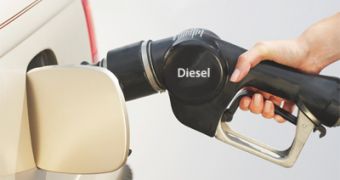Diesel that has been modified with nanoparticles helps boost fuel efficiency, a recent paper authored by scientists in India says. By doing so, it yields both financial and environmental benefits.
The paper in question has been published in the journal Fuel. The researchers who pieced it together explain that, as part of their investigation, they modified a base version of diesel using nanoparticles of aluminum, iron or boron.
The resulting fuels were then tested in a single-cylinder CI (compression ignition) engine. The goal was to determine how the use of nanoparticles had influenced both fuel efficiency and the ecological footprint of the resulting emissions.
“Experimental investigation was carried out to study the burning characteristics, engine performance and emission parameters of a single-cylinder Compression Ignition (CI) engine using nanofuels which were formulated by sonicating nanoparticles of aluminum (A1), iron (F1) and boron (B1) in base diesel,” the scientists write in the Abstract to their paper.
The so-called nanofuels created by this team of researchers were all found to reduce ignition delay. What's more, their use was linked to longer flame sustenance, Green Car Congress reports.
Of the three different types of fuels, the one modified with aluminum nanoparticles was documented to reduce fuel consumption by roughly 7% when compared to run-off-the-mill diesel.
As the specialists explain in their paper, “Study of engine performance at higher loads revealed drop in peak cylinder pressures and reduction of 7% in specific fuel consumption for A1 as compared to diesel.”
Apart from boosting fuel efficiency, the nanfuels were documented to help reduce carbon dioxide and hydrocarbons emissions, the same source tells us.
Thus, when the engine was made to run on fuel modified with aluminum and iron, hydrocarbon emissions dropped by 8% and 4%, respectively, when compared to regular diesel. Besides, the researchers recorded a 25-40% volumetric reduction in carbon dioxide emissions.
On the downside, NOx (i.e. mono-nitrogen oxides NO and NO2) emissions were found to somewhat increase, the researchers say.

 14 DAY TRIAL //
14 DAY TRIAL //